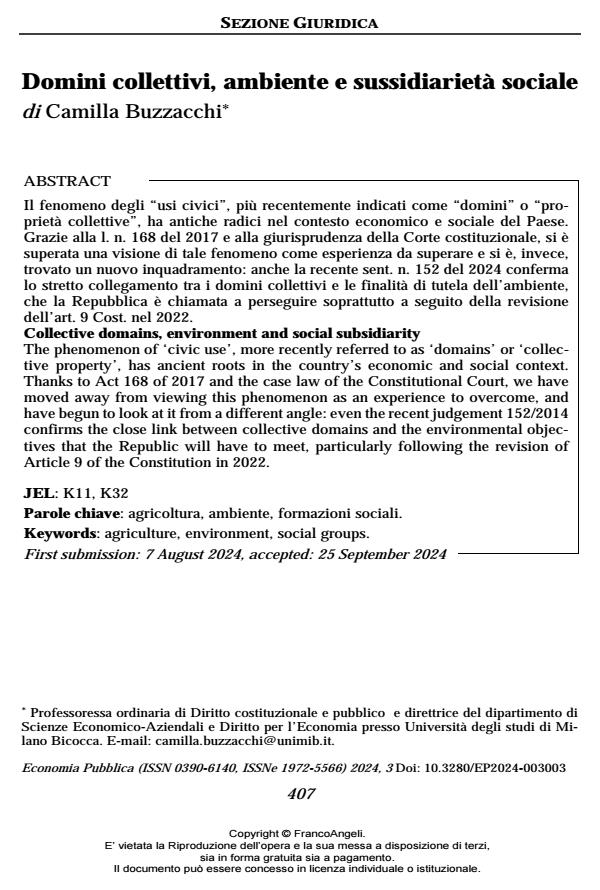Domini collettivi, ambiente e sussidiarietà sociale
Journal title ECONOMIA PUBBLICA
Author/s Camilla Buzzacchi
Publishing Year 2024 Issue 2024/3
Language Italian Pages 21 P. 407-427 File size 97 KB
DOI 10.3280/EP2024-003003
DOI is like a bar code for intellectual property: to have more infomation
click here
Below, you can see the article first page
If you want to buy this article in PDF format, you can do it, following the instructions to buy download credits

FrancoAngeli is member of Publishers International Linking Association, Inc (PILA), a not-for-profit association which run the CrossRef service enabling links to and from online scholarly content.
Il fenomeno degli “usi civici”, più recentemente indicati come “domini” o “proprietà collettive”, ha antiche radici nel contesto economico e sociale del Paese. Grazie alla l. n. 168 del 2017 e alla giurisprudenza della Corte costituzionale, si è superata una visione di tale fenomeno come esperienza da superare e si è, invece, trovato un nuovo inquadramento: anche la recente sent. n. 152 del 2024 conferma lo stretto collegamento tra i domini collettivi e le finalità di tutela dell’ambiente, che la Repubblica è chiamata a perseguire soprattutto a seguito della revisione dell’art. 9 Cost. nel 2022. Collective domains, environment and social subsidiarity The phenomenon of ‘civic use’, more recently referred to as ‘domains’ or ‘collective property’, has ancient roots in the country’s economic and social context. Thanks to Act 168 of 2017 and the case law of the Constitutional Court, we have moved away from viewing this phenomenon as an experience to overcome, and have begun to look at it from a different angle: even the recent judgement 152/2014 confirms the close link between collective domains and the environmental objectives that the Republic will have to meet, particularly following the revision of Article 9 of the Constitution in 2022.
Keywords: agriculture, environment, social groups
Jel codes: K11, K32
Camilla Buzzacchi, Domini collettivi, ambiente e sussidiarietà sociale in "ECONOMIA PUBBLICA " 3/2024, pp 407-427, DOI: 10.3280/EP2024-003003